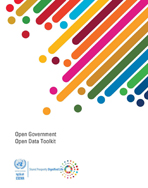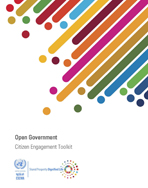Bilateral Investment Treaties
Bilateral Investment Treaties :Project on Strengthening Capacities in the ESCWA Region
The recent global financial crisis had a significant impact on the Foreign Direct Investment (FDI) inflows to the ESCWA region. FDI inflows to the ESCWA region started to drop in 2008 for the first time since 2001. Specifically, FDI inflows to the ESCWA region were an estimated $60 billion in 2008, compared to $64 billion in 2007, thereby registering a decrease of 6.3 per cent. The percentage of FDI inflows remains small as a fraction of the size of the ESCWA region compared to other emerging markets particularly in countries such as Iraq, Jordan, Lebanon, Syria and Yemen.
These 8 countries (Saudi Arabia, Lebanon, Oman, Sudan, Jordan, Syria, Iraq, and Yemen) which are very different in their political, economic, social and institutional make-up, nonetheless share some common challenges in encouraging investment. A weak protection for stakeholders represents a major bottleneck to attract FDI in the above mentioned ESCWA member countries. Increasing the protection of investors through the Bilateral Investment Treaties (BITs) could attract private capital. In particular, strengthening investor rights could increase intraregional investments in a number of promising sectors in industry and agriculture.
From the above, ESCWA took the initiative to provide technical assistance to the eight member countries in the area of BITs in order to improve the negotiation skills of concerned government officials, particularly in the ministries of foreign affairs, justice, economy, investment and planning in designing and negotiating BITs. Incorporation with the United Nations Conference on Trade and Development (UNCTAD), ESCWA launched a project entitled “Strengthening capacities in the Economic and Social Commission for Western Asia region to negotiate bilateral investment treaties” in June 2010 which will continue till June 2014. The project will incorporate several activities including the following:
- Producing a comprehensive Manual on BITs prepared by international consultants.
- Organizing eight national training workshops for government officials from different ministries and government agencies (investment, legal, foreign affairs, international cooperation, economy and finance) to improve the technical capabilities of member countries in designing and negotiating bilateral investment treaties.
- Establishing a platform (website) to promote the exchanges of expertise between different governments to encourage the implementation of common procedures and standards among member countries in the area of FDI;
- Organizing intraregional study tour to create opportunities for government officials who are involved in designing and negotiating bilateral investment treaties to learn from best practices and to share experience with others in the region.
- Conducting one seminar to provide a forum for member countries to share and exchange country experiences and to develop common procedures for conflict resolutions between foreign investors and host country;
- Providing advisory services to strengthen national and regional institutions in dealing with conflict resolutions between countries involved in bilateral investment agreements.









